

 Copyright 2014 by Henrik Drescher.
Copyright 2014 by Henrik Drescher.
All rights reserved. No part of this book may be reproduced
in any form without written permission from the publisher. Library of Congress Cataloging-in-Publication Data available. ISBN: 978-1-4521-2554-1 (hc)
ISBN: 978-1-4521-2965-5 (epub, mobi) Designed by Henrik Drescher, www.hdrescher.com Chronicle Books LLC
680 Second Street
San Francisco, CA 94107 www.chroniclebooks.com
Contents



One scorching spring afternoon in 2002, my wife, Wu Wing Yee, and I boarded a sleeper train from Guangzhous chaotic central station for a twenty-seven-hour journey to Yunnan province. Our idea was to make a one-month escape from the fetid heat of the Guangzhou, where we lived, to the high, arid mountains of southwestern China.

The next morning, looking out the windows of our rumbling train, I saw for the first time the mountains of Guizhou: they jutted up like huge anthills between flowering rapeseed fields.
In my mind these impossible mountains existed only as artistic inventions on ancient scrolls. This proved to be the beginning of a long series of eye-opening, mind-popping experiences in my new China life. Dali, Yunnan, lies between the Cangshan Mountains and Lake Erhai. The province borders the countries of Burma, Laos, and Vietnam, and has for decades been a refuge from the oppressive overcrowding and pollution of Chinese urban life. As an artist Ive tried to make it a priority to live in places that offered me the two most valuable resources for creativity: time and space. In Dali, Wing and I found both.
The clean, dry air and sun-filled days lulled us into a hypnotic rhythm of work and play unequaled anywhere wed lived before. In the blink of an eye, our one-month holiday morphed into an eleven-year relationship with the verdant mountains of Yunnan. When we first arrived, we stayed in hotels and guesthouses, usually renting two rooms, one to sleep in and one to work in. Gradually we upgraded to a rented courtyard house, and for a time we lived in a storefront, until finally, in 2005, we bought and renovated a small two-story town house. Dali is home to the Bai cultural minority. More than a millennium ago it was the independent Bai kingdom of Nanzhao, which lasted for less than two hundred years before it fell.
A few centuries later, Kublai Kahn conquered this region, absorbing it into the Yuan dynasty. Today Dali is defenseless against the invading hordes of tour groups and backpackers on the granola trail, looking for their own private Shangri-la. Actually, the real Shangri-la can be found only eight hours drive north of Dali and is usually the next stop after visiting the hyper-touristy town of Lijiang. In the dozen years weve been connected to Dali, it has shed its skin numerous times: old farmhouses torn down to build new fake old-farmhouse-tourist-malls, electric tourist buses introduced to haul exhausted tour-bus groups around town quickly, leaving enough time to get to Lijiang in time for shopping and dinner. Besides the tour-group onslaught, Dali has experienced a steady migration of people from big, polluted metropolises looking for a cleaner, healthier lifestyle. The upside to this phenomenon is that with the arrival of these new residents, bookshops, cafs, and restaurants have sprouted up around town, which make life a bit easier for people like us, but at the same time make me hate people like us.
China is a living paradox. It is the richest and the poorest place on the planet. It is ancient and it is ultramodern. There is a tenderness and debt to people that harkens back to antiquity, and at the same time it is hopelessly infested with corruption, greed, and cruelty. In my time here Ive attempted to be an observer and a participant. I have probably been most successful at the formerthe language has always been a struggle for me, and observation is in my blood.
My work, whether it be illustration, edition books, or painting, has always been about absorbing and documenting existence. It is my hope that this little book somehow manages to reflect a handful of the numerous facets of this great place. 
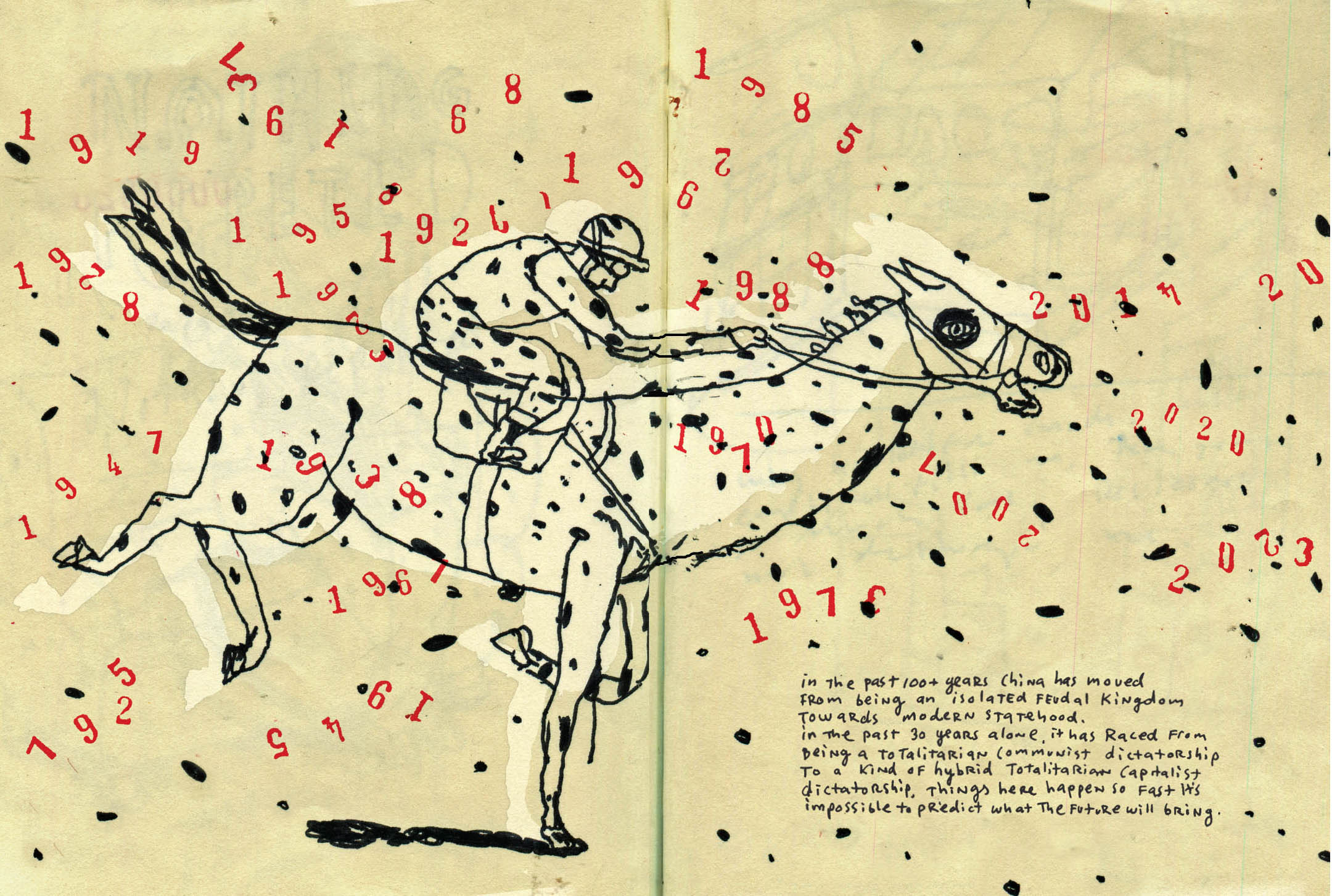
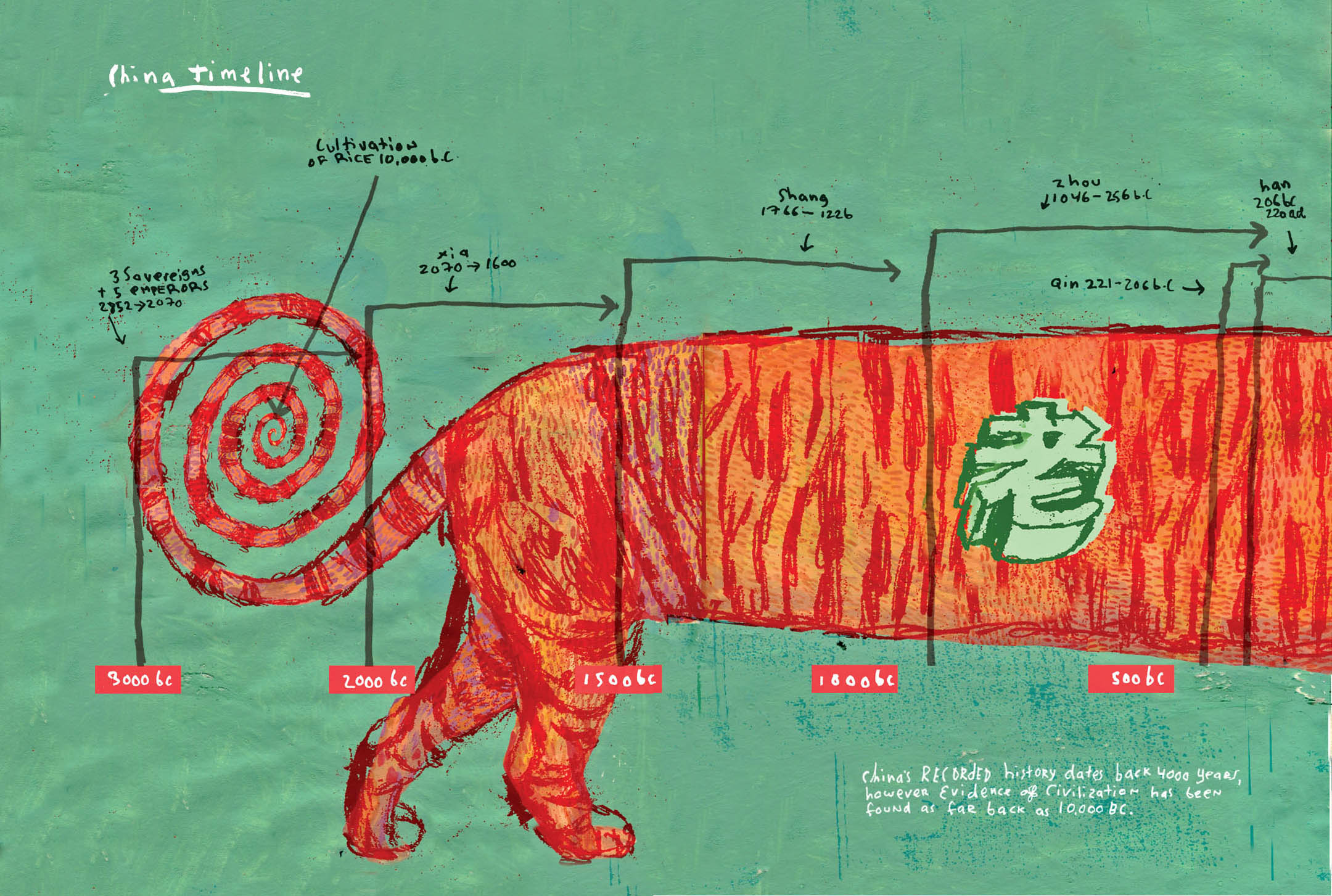
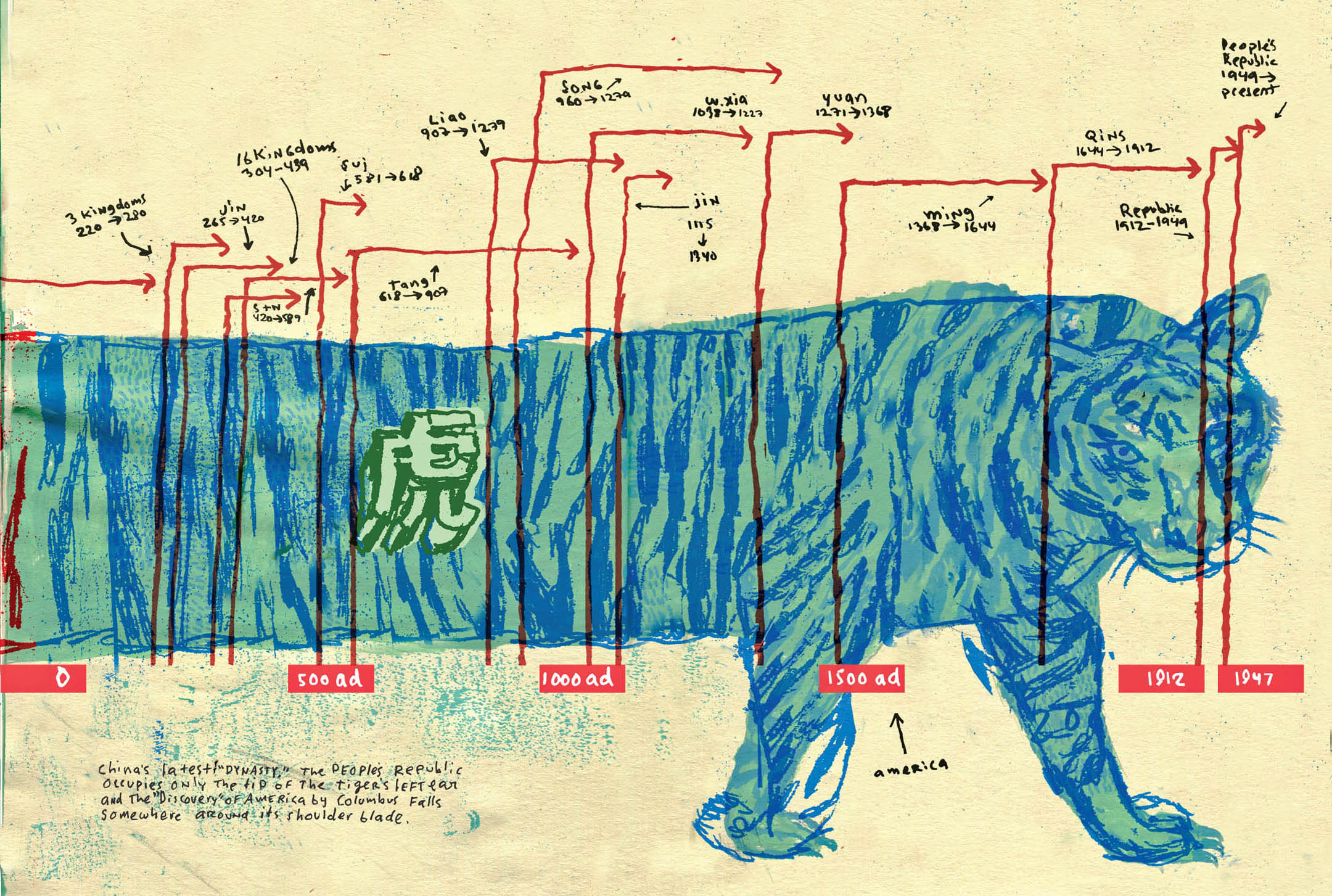
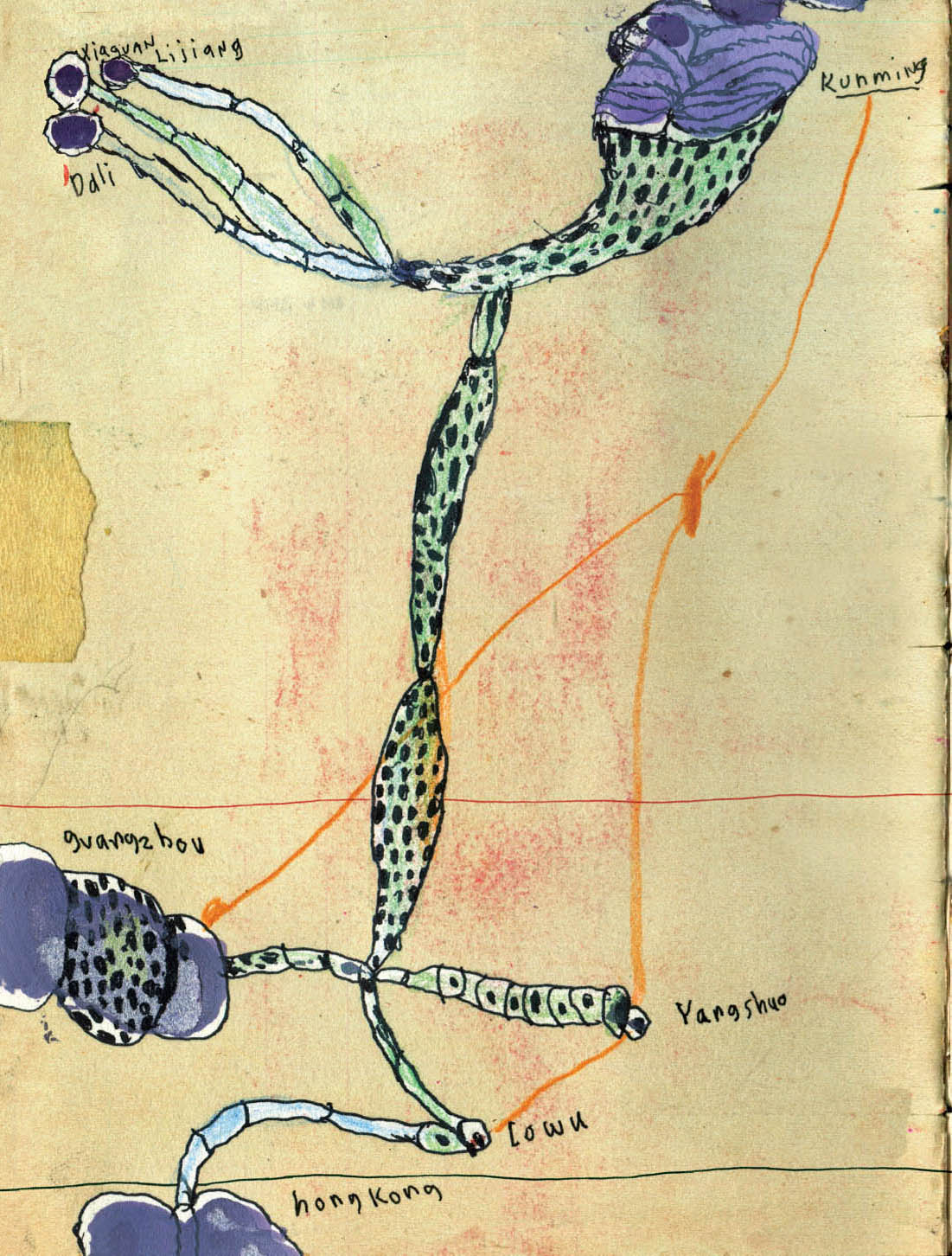
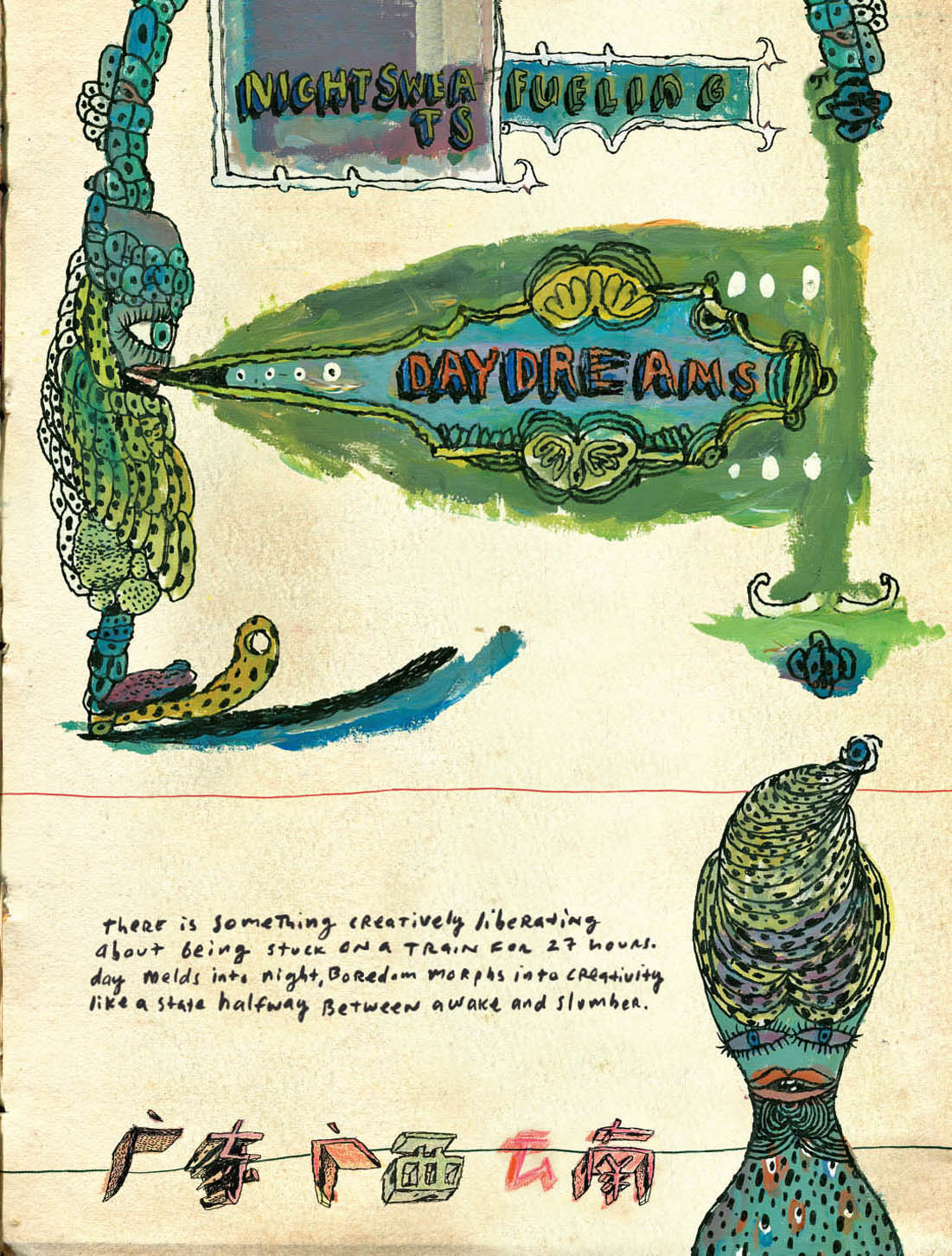
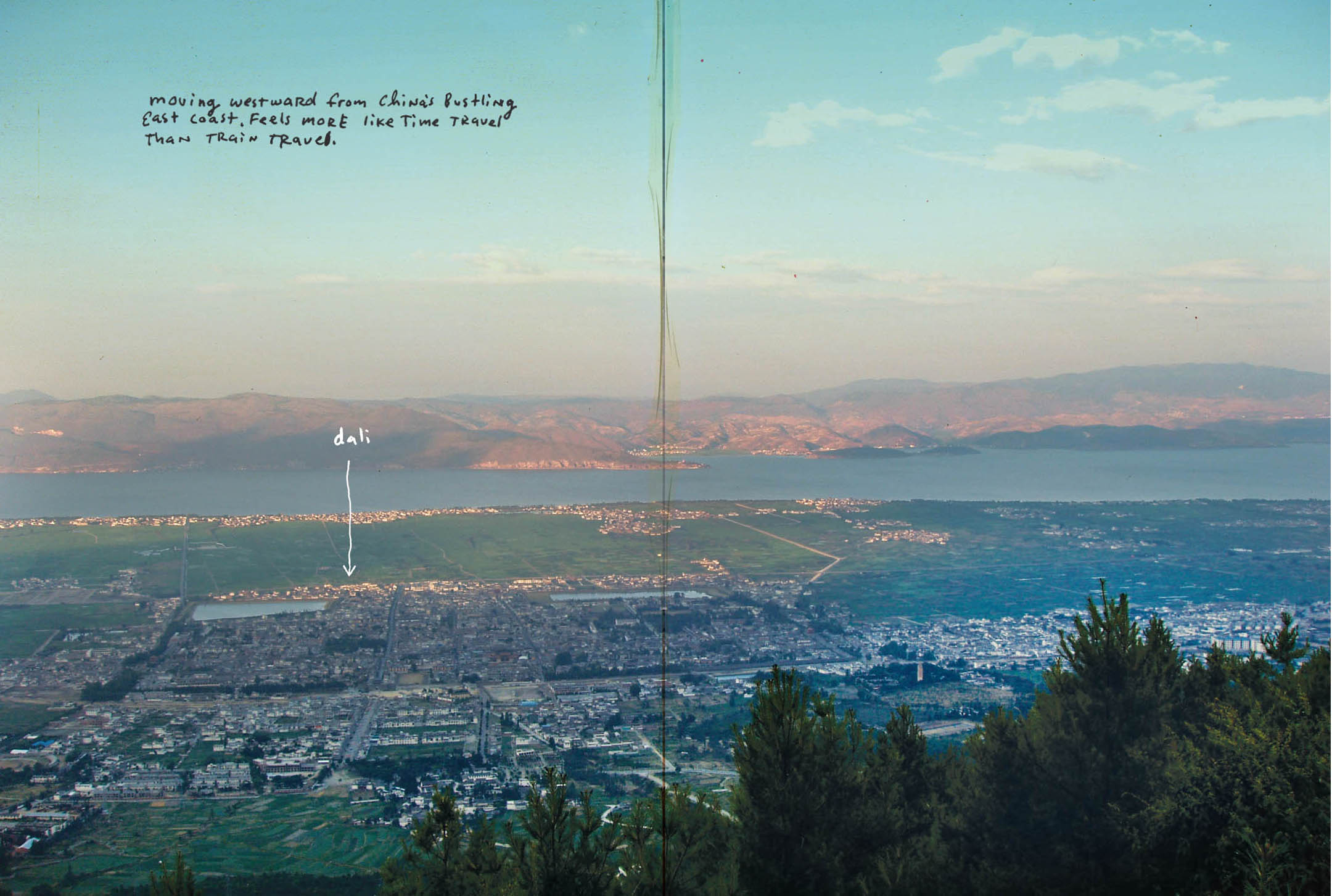
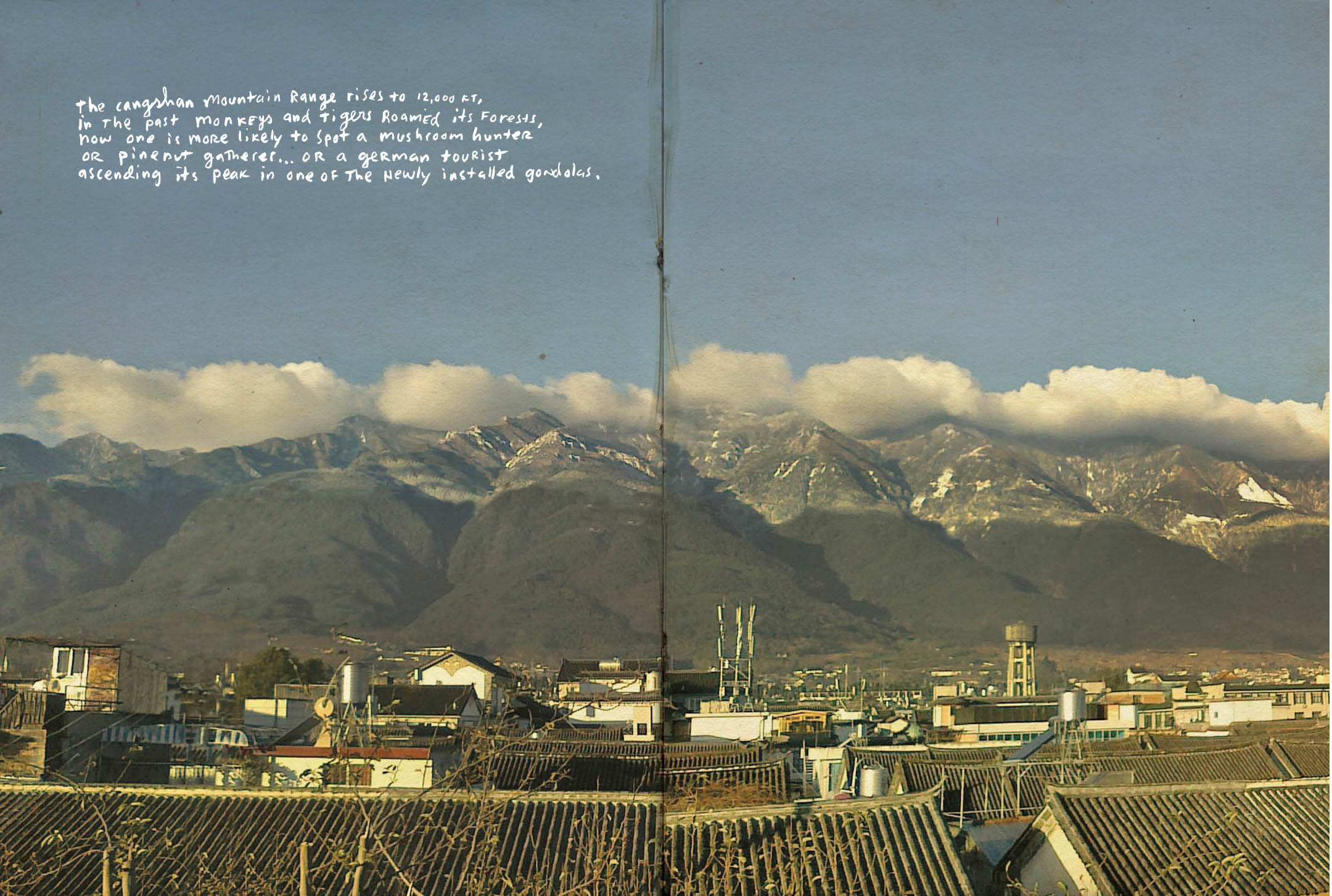
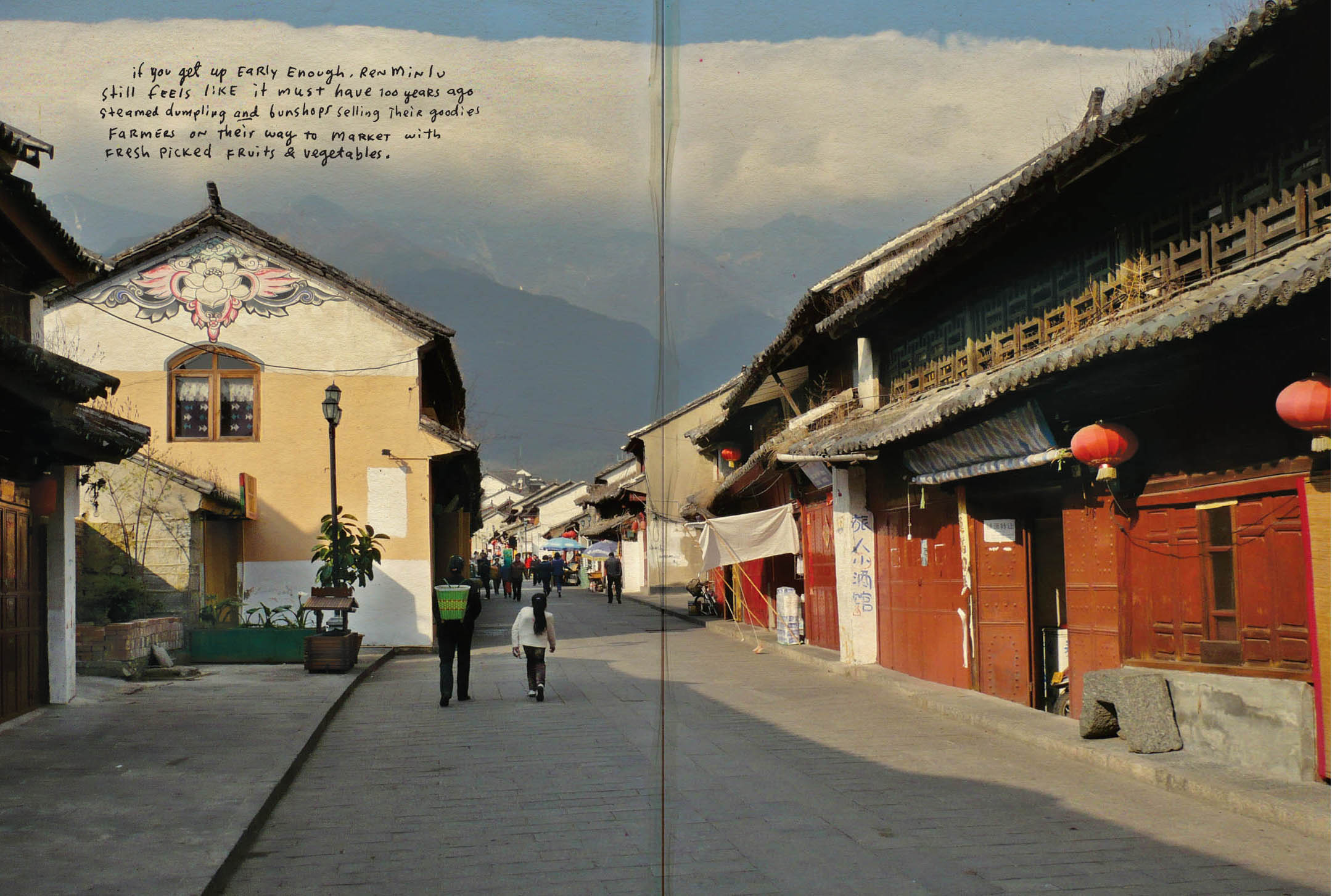
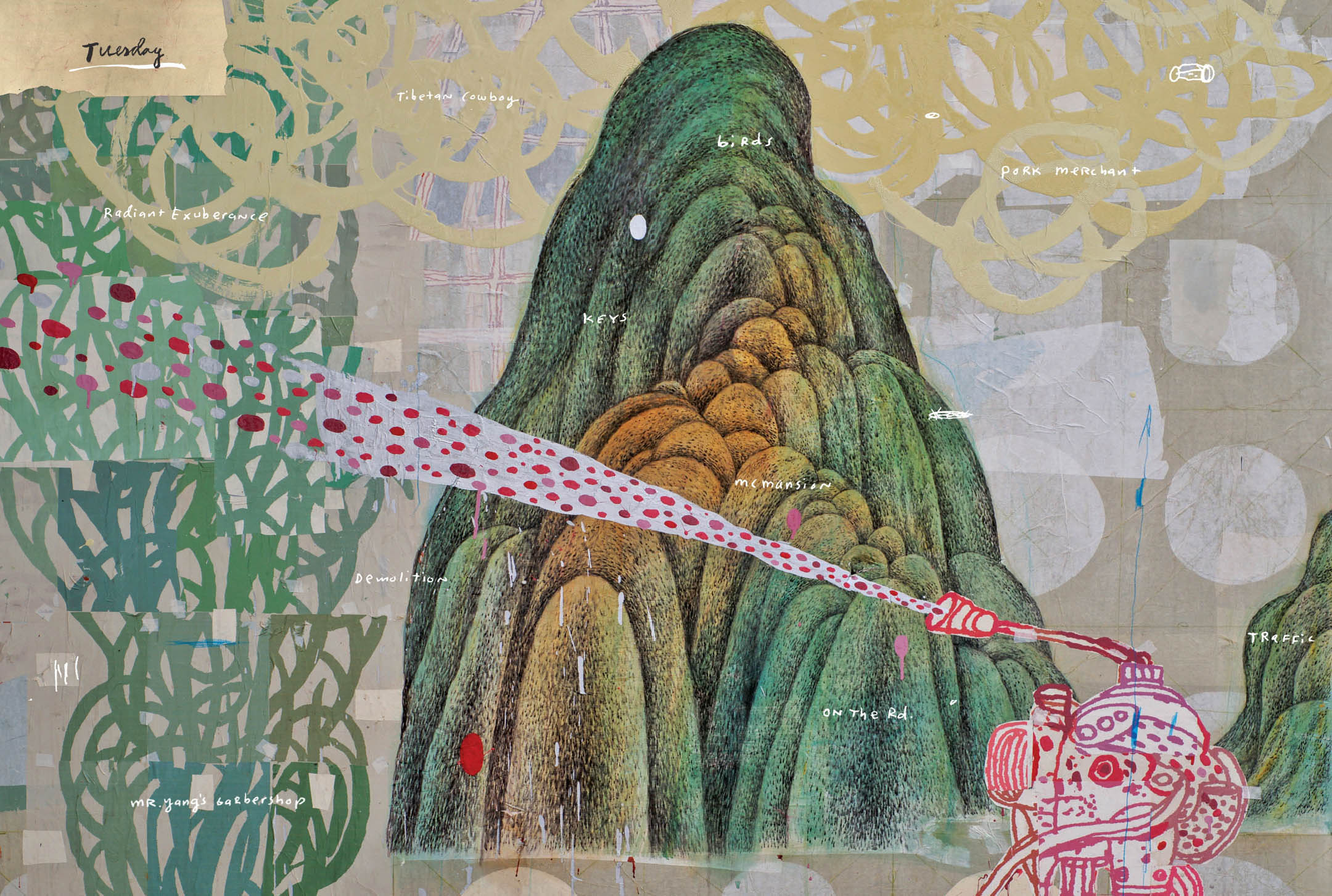
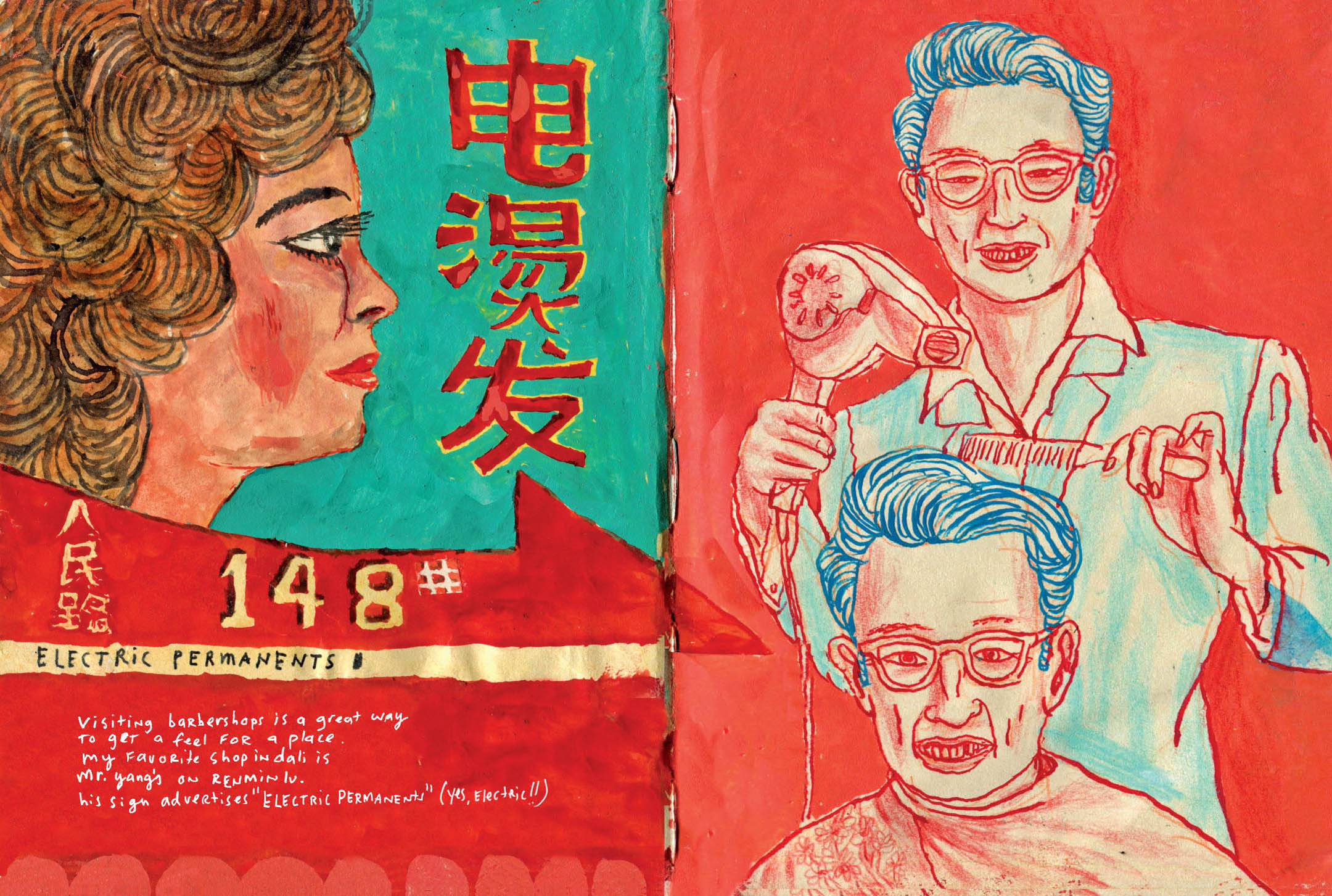
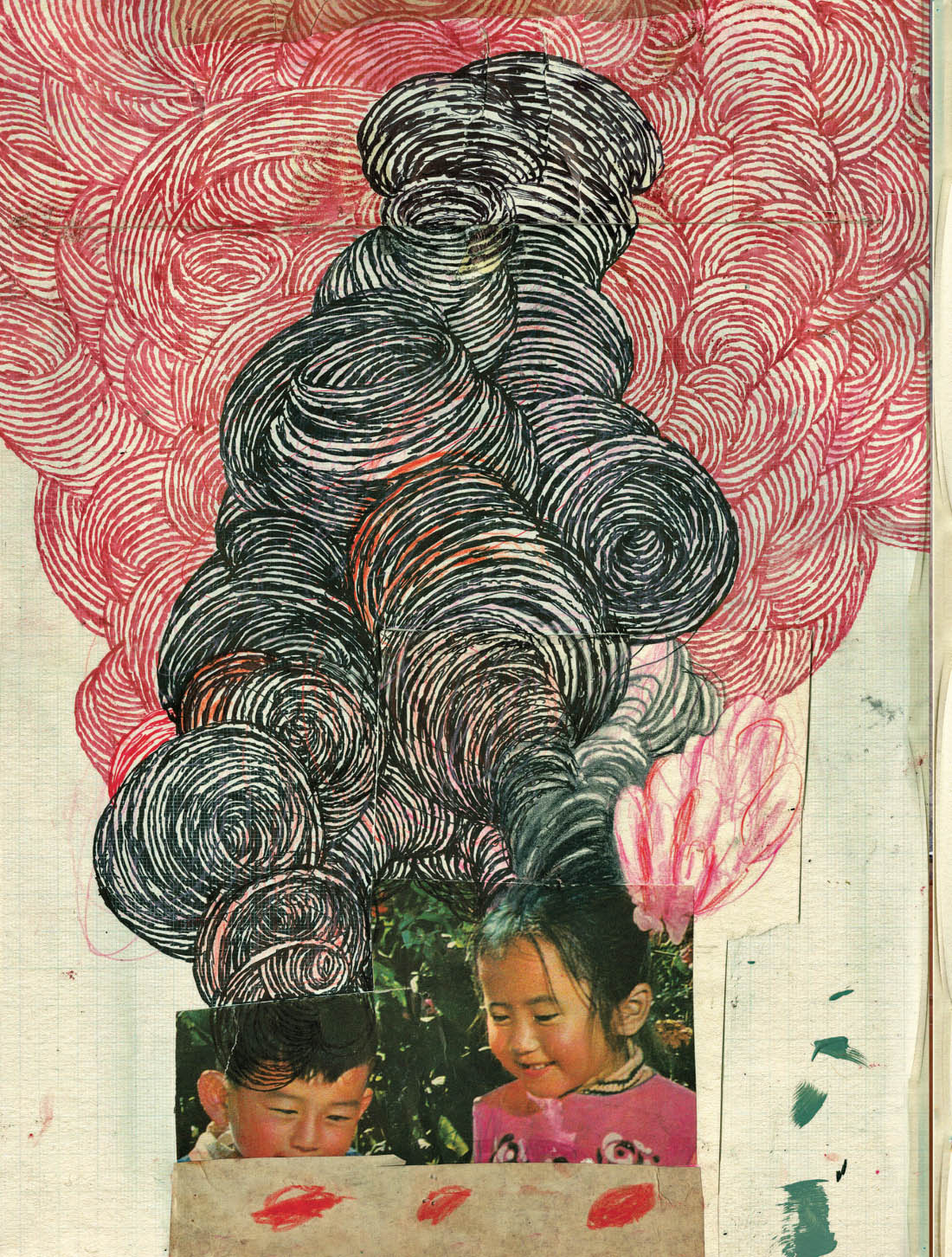
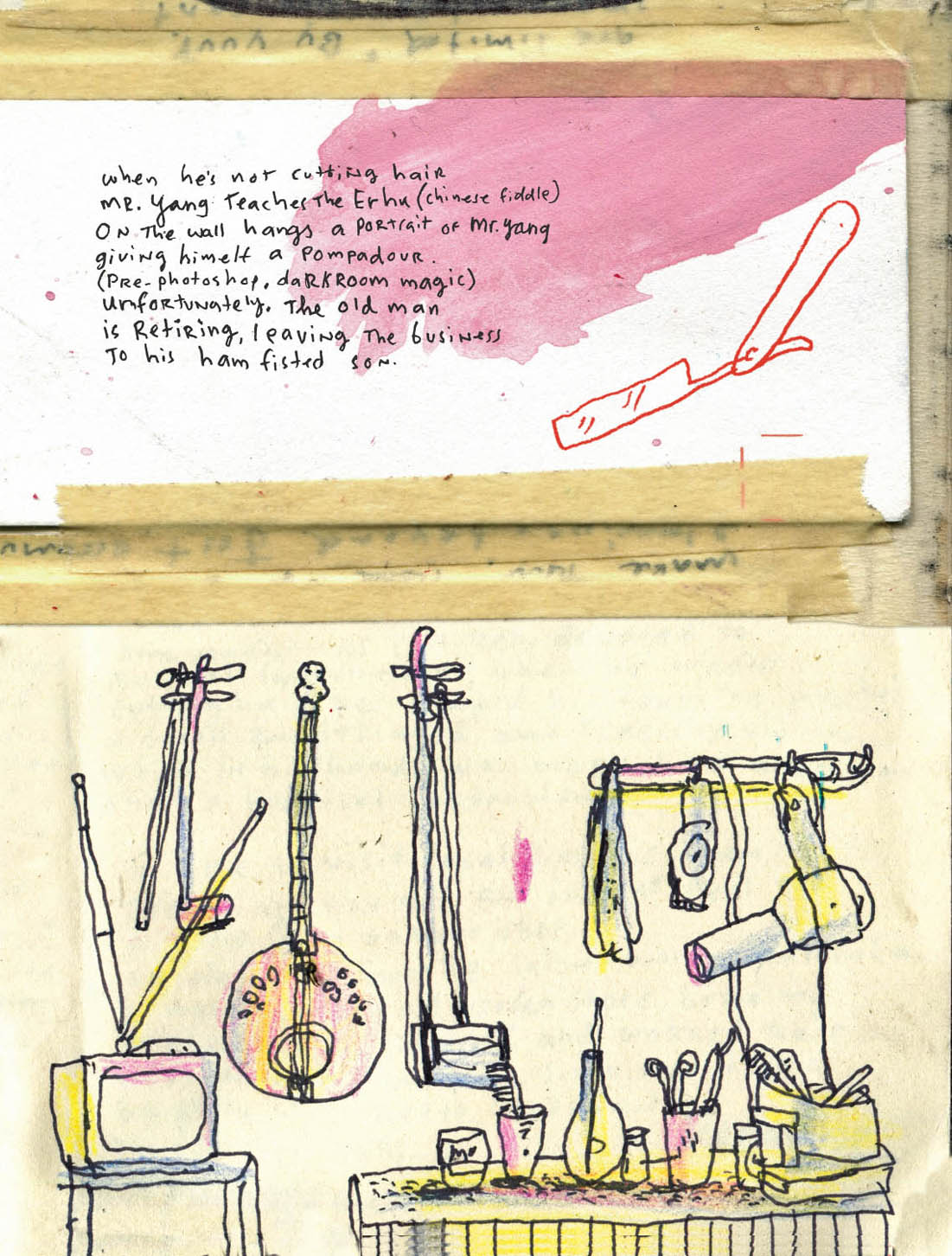
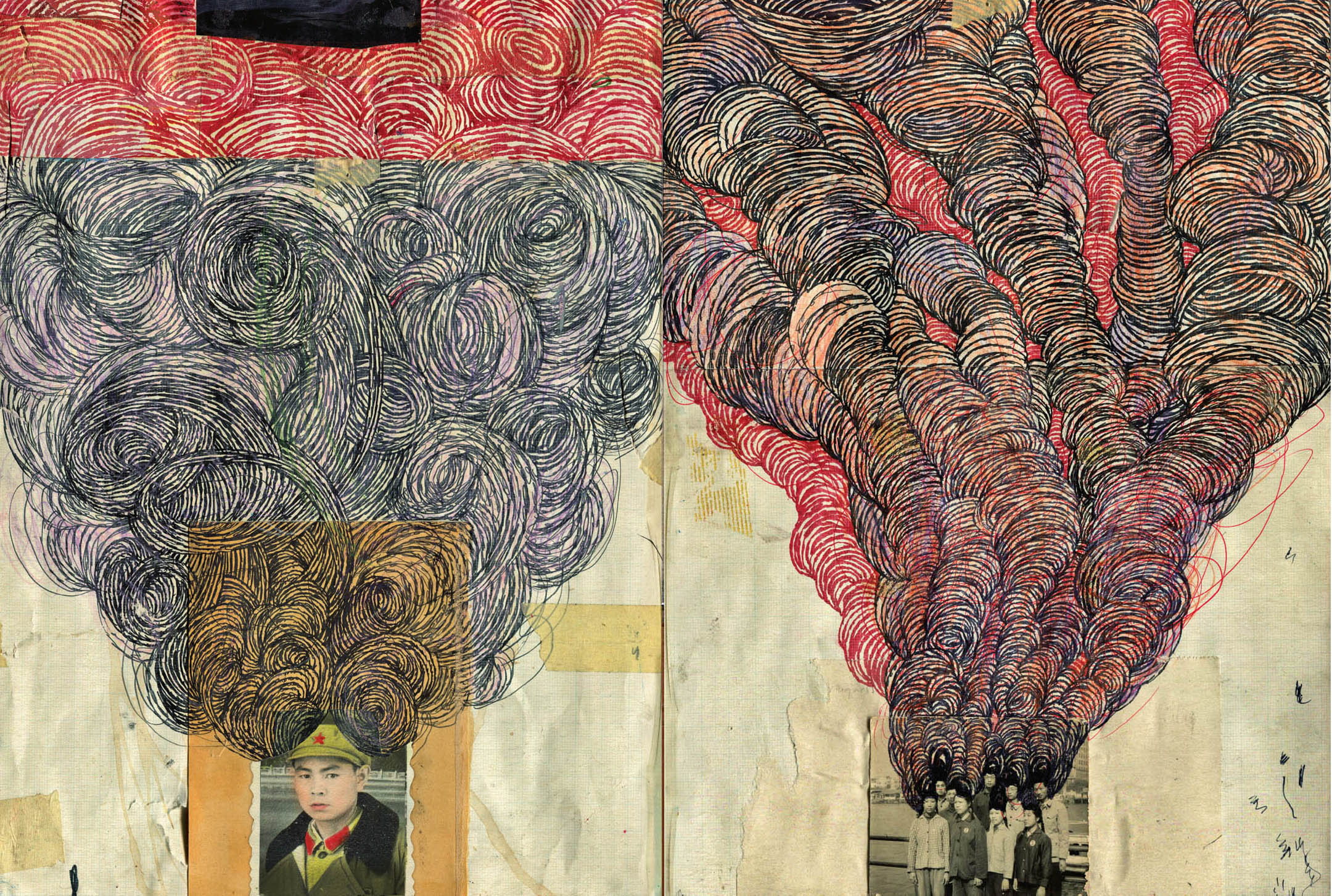
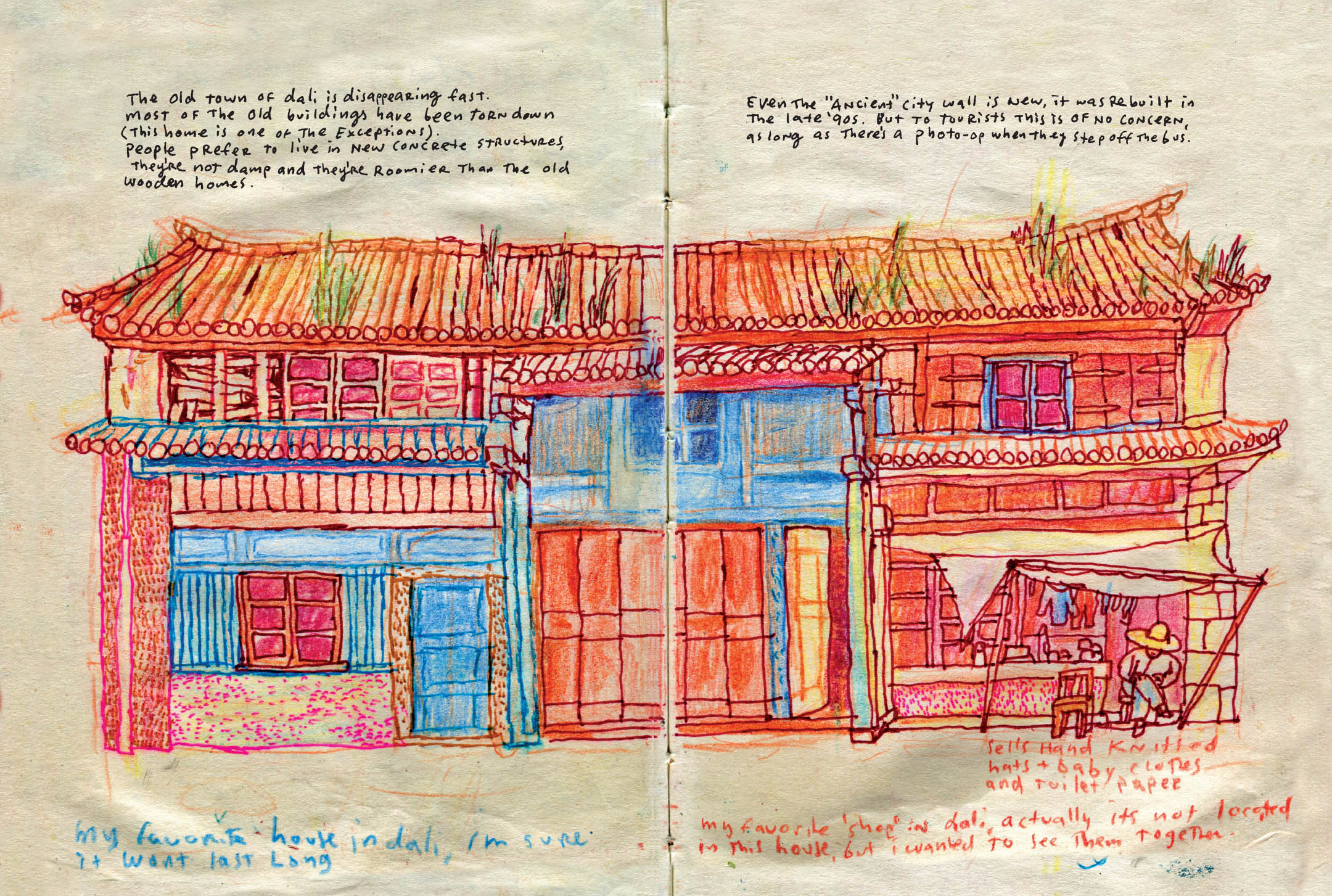
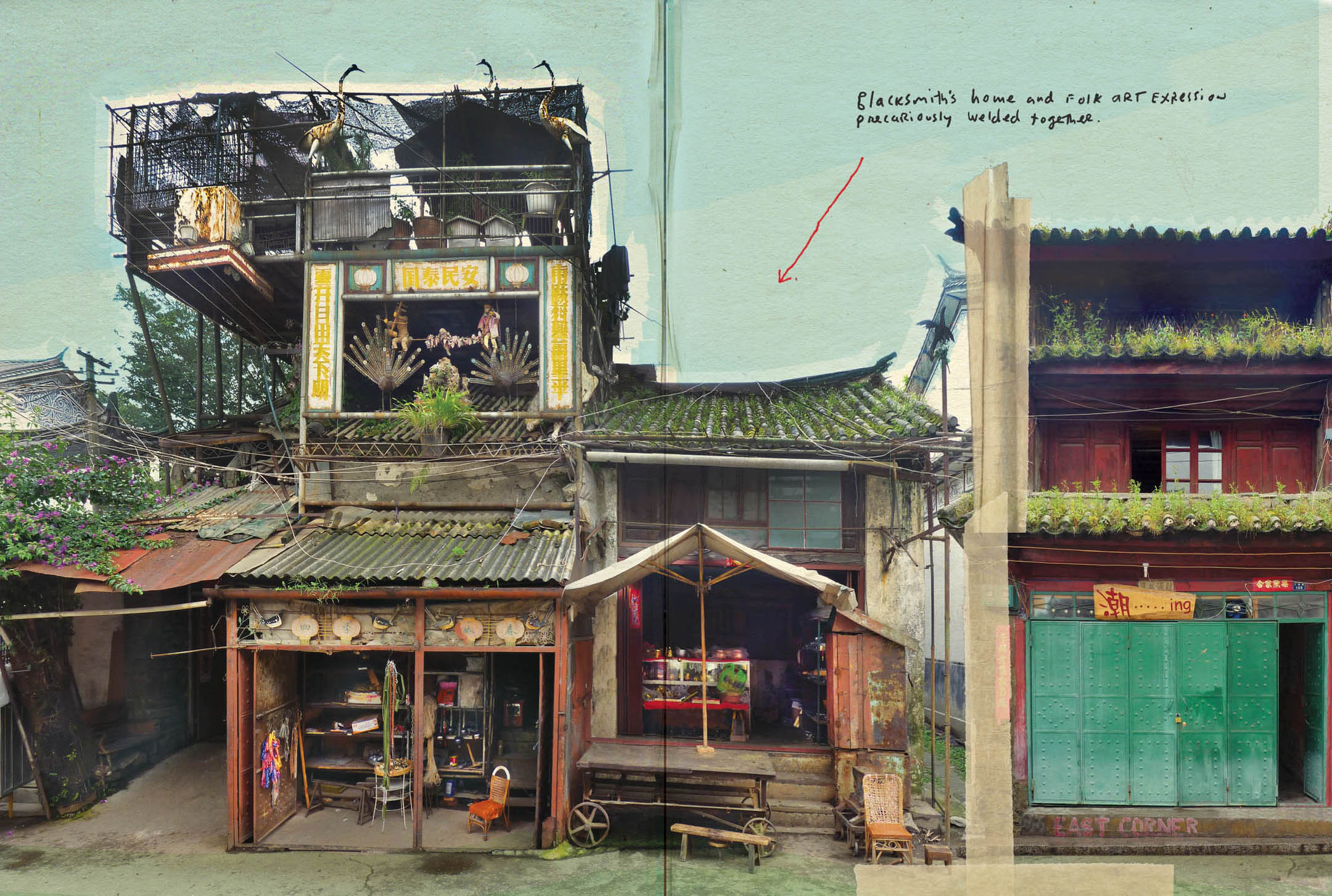
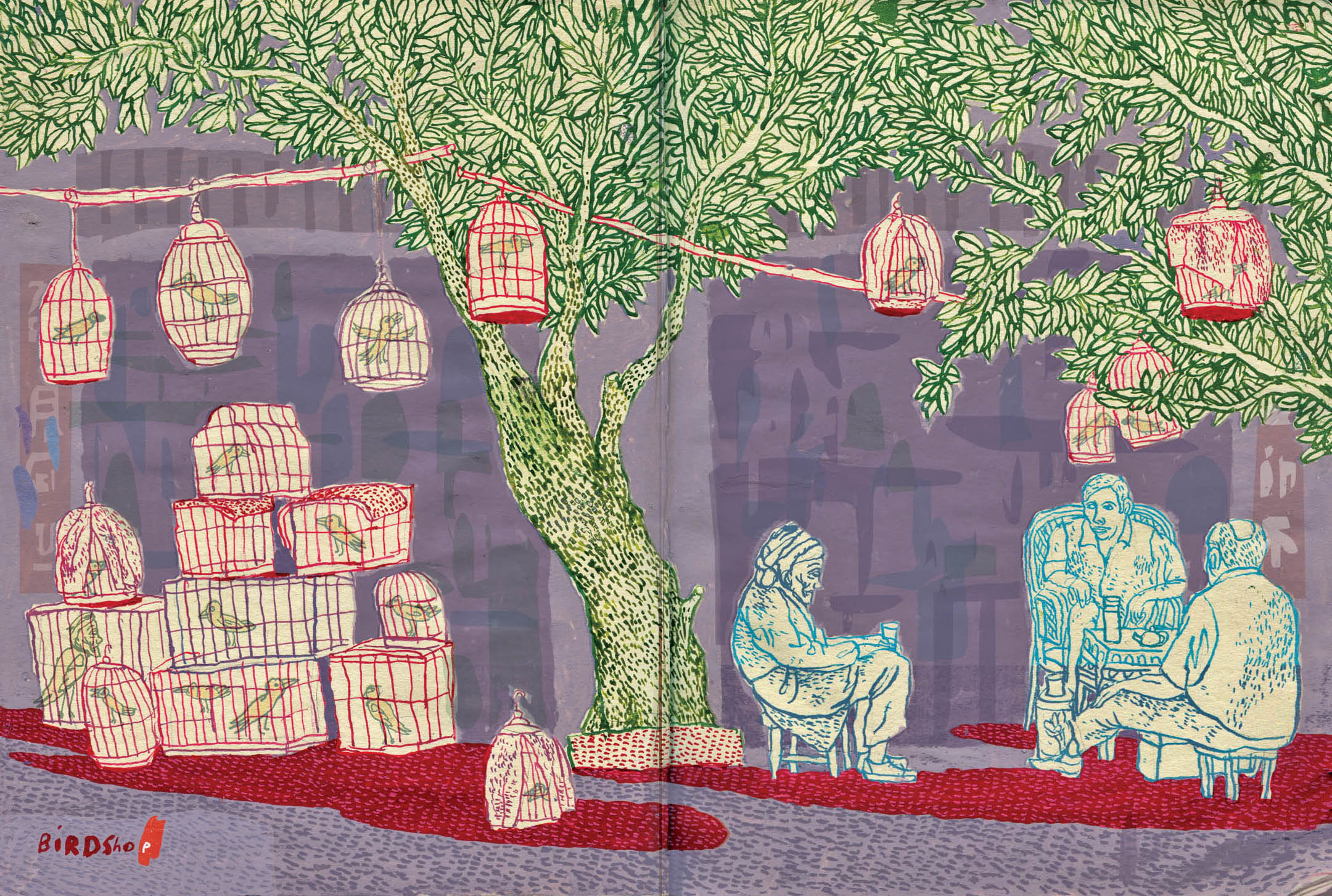
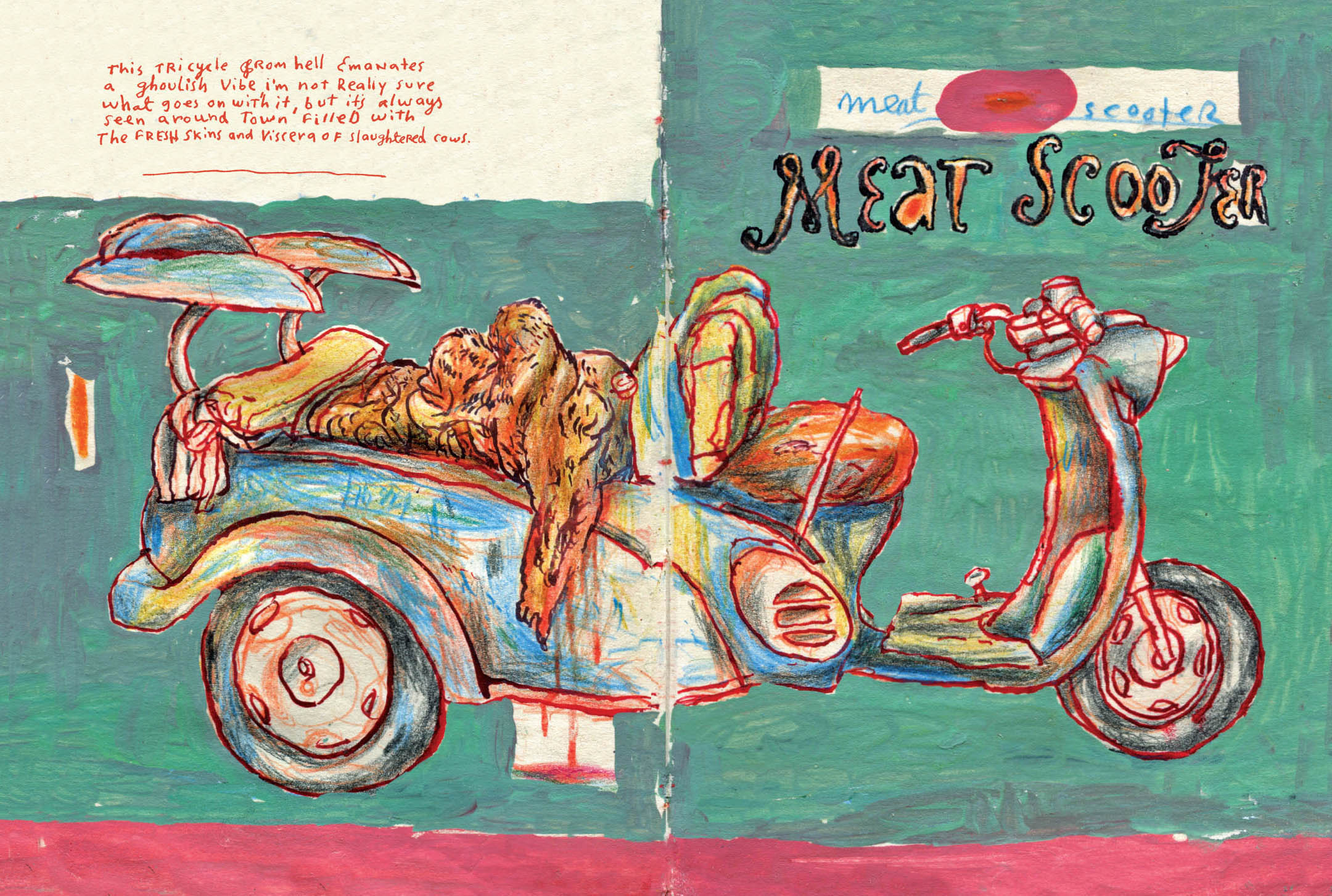
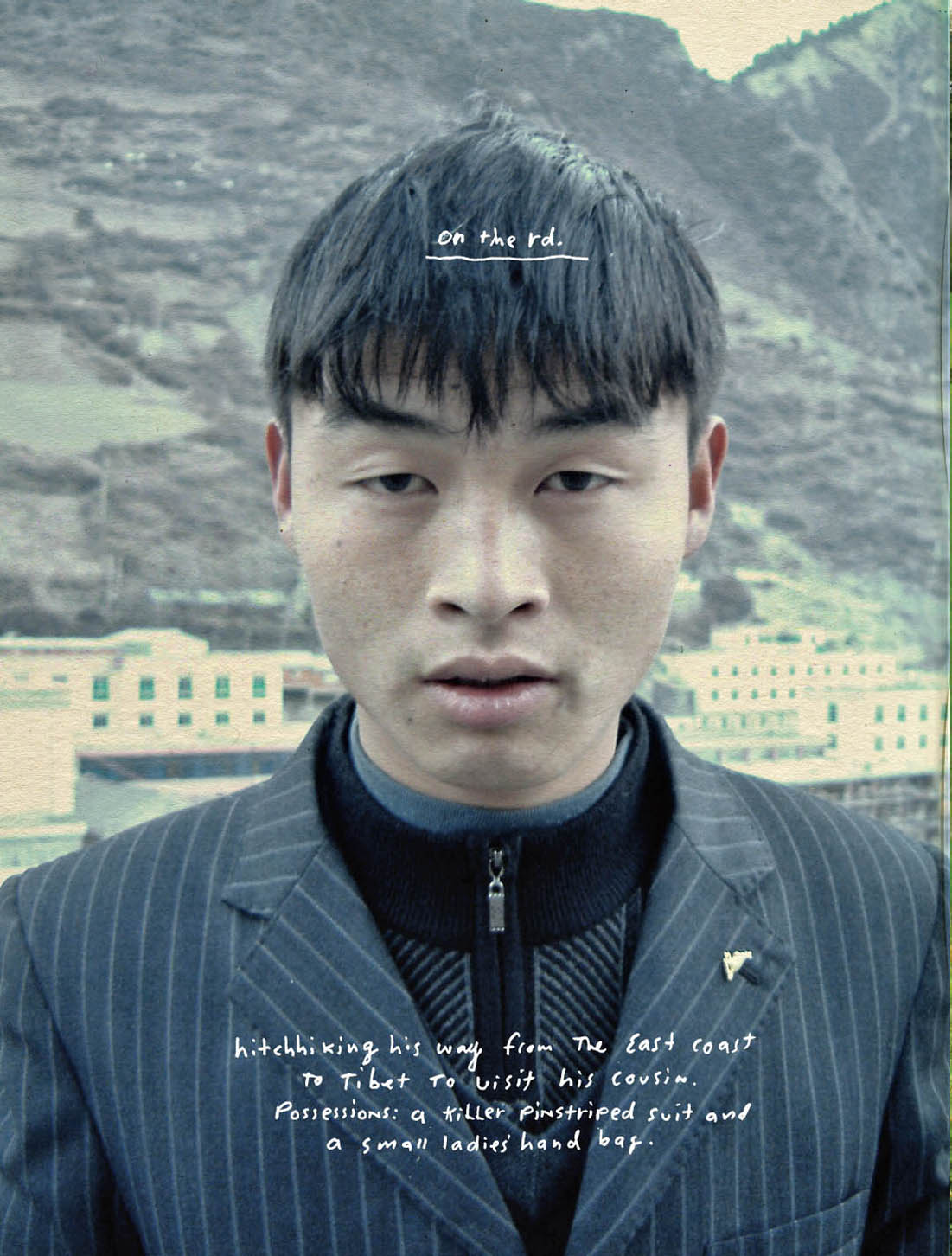
Next page

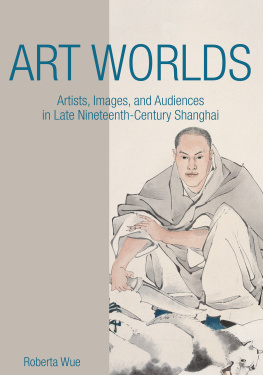
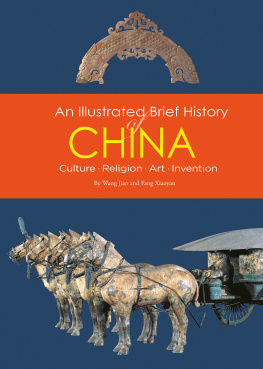
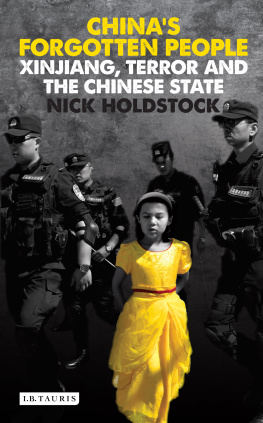


 Copyright 2014 by Henrik Drescher.
Copyright 2014 by Henrik Drescher.

 One scorching spring afternoon in 2002, my wife, Wu Wing Yee, and I boarded a sleeper train from Guangzhous chaotic central station for a twenty-seven-hour journey to Yunnan province. Our idea was to make a one-month escape from the fetid heat of the Guangzhou, where we lived, to the high, arid mountains of southwestern China.
One scorching spring afternoon in 2002, my wife, Wu Wing Yee, and I boarded a sleeper train from Guangzhous chaotic central station for a twenty-seven-hour journey to Yunnan province. Our idea was to make a one-month escape from the fetid heat of the Guangzhou, where we lived, to the high, arid mountains of southwestern China.  The next morning, looking out the windows of our rumbling train, I saw for the first time the mountains of Guizhou: they jutted up like huge anthills between flowering rapeseed fields.
The next morning, looking out the windows of our rumbling train, I saw for the first time the mountains of Guizhou: they jutted up like huge anthills between flowering rapeseed fields. 

















